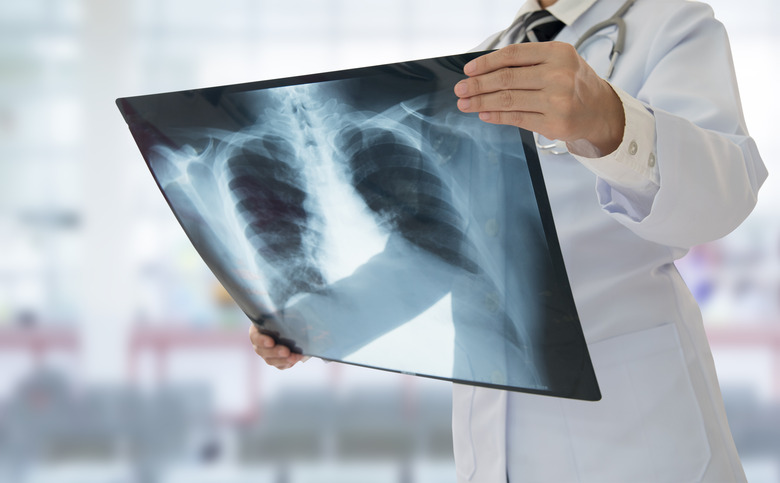Which Organs Help The Human Body Get Rid Of Wastes Produced By Cells?
Staying alive takes work. The body's cells must continuously replace worn-out components and break down fuels such as sugar and fat molecules to release the energy needed to maintain themselves, perform their functions and divide. These processes, however, release wastes in the form of urea and carbon dioxide. If these wastes were allowed to build up, cells would cease to function. Consequently, the body must remove wastes from the bloodstream through such mechanisms as respiration and excretion.
TL;DR (Too Long; Didn't Read)
The major organs tasked with detoxifying your body are your liver and kidneys, and your lungs help eliminate wastes produced by your cells, too.
Lungs
Lungs
For each molecule of glucose cells break down, they release six molecules of carbon dioxide (CO2) and six molecules of water. The carbon dioxide diffuses into the bloodstream and into red blood cells, where it reacts with water to form carbonic acid (H2CO3). The carbonic acid dissociates into a hydrogen ion and a bicarbonate ion (HCO3-); it's in this form that much of the CO2 is carried back to the lungs. Once the blood reaches the lungs, carbon dioxide in the blood diffuses into the lung, decreasing the concentration of CO2 in the bloodstream. This change causes bicarbonate ions to react to form more CO2, which also diffuses back into the lung. The waste CO2 is expelled from the body by the lungs with exhalation.
Liver
Liver
The liver plays a variety of essential roles in metabolism and waste disposal. Proteins and nucleic acids contain nitrogen, so when the cells break them down, a toxic compound called ammonia (NH3) is released. The liver combines ammonia with CO2 to produce a compound called urea that's easier to store and can be expelled from the body during excretion.
Skin
Skin
Your sweat is another means your body has to remove waste materials. Although the primary role of perspiration is to cool the body and prevent internal overheating, sweat also contains small amounts of salts, amino acids and lipids that are carried out of the body along with moisture.
Kidneys
The kidneys act as filters that strain urea and excess salts from the bloodstream to release them in the urine. Urea, salts, vitamins, amino acids and other dissolved substances are initially filtered from the blood through a ball of capillaries called a glomerulus. The kidneys later reabsorb many of the salts, amino acids and other important substances back into the bloodstream; the remaining water and waste product, however, is funneled via the ureter into the bladder, where it's stored before expulsion as urine.
References
Cite This Article
MLA
Brennan, John. "Which Organs Help The Human Body Get Rid Of Wastes Produced By Cells?" sciencing.com, https://www.sciencing.com/organs-rid-wastes-produced-cells-6785572/. 26 April 2018.
APA
Brennan, John. (2018, April 26). Which Organs Help The Human Body Get Rid Of Wastes Produced By Cells?. sciencing.com. Retrieved from https://www.sciencing.com/organs-rid-wastes-produced-cells-6785572/
Chicago
Brennan, John. Which Organs Help The Human Body Get Rid Of Wastes Produced By Cells? last modified March 24, 2022. https://www.sciencing.com/organs-rid-wastes-produced-cells-6785572/
